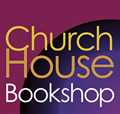Blake's 'Jerusalem' As Visionary Theatre
Entering the Divine Body
This item is out of stock.
Other
£125.00
Publisher: Oxford University Press
ISBN: 9780199603145
Number of Pages: 338
Published: 20/10/2011
Width: 16.4 cm
Height: 24 cm
Before etching Jerusalem William Blake wrote about creating 'the grandest poem that this world contains.'
Blake's avowed intention in constructing the work was to move readers from a solely rational way of being (called Ulro) to one that is highly imaginative (called Eden/Eternity), with each word chosen to suit 'the mouth of a true Orator.' Rational interpretation is of limited use when reading this multifaceted epic and its non-linear structure presents a perennial challenge for readers.
Susanne Sklar engages with the interpretive challenges of Jerusalem by considering it as a piece of visionary theatre —an imaginative performance in which characters, settings, and imagery are not confined by mundane space and time— allowing readers to find coherence within its complexities. With his characters, Blake's readers can participate imaginatively in what Blake calls 'the Divine Body, the Saviour's Kingdom,' a way of being in which all things interconnect: spiritually,
ecologically, socially, and erotically.
Imaginatively engaging with Jerusalem involves close textual reading and analysis. The first part of this book discusses the notion of visionary theatre, and the theological, literary, and historical antecedents of Jerusalem's imagery, characters, and settings. Particular attention is paid to the theological context of Blake's Jesus ('the Divine Body'), and Jerusalem, the heroine of his poem. This prepares the ground for a scene-by-scene commentary of the entire illuminated
work. Jerusalem tells the story of Albion's fall, many rescue attempts, escalating violence and oppression, and a surprising apocalypse —in which all living things, awakening, are transfigured in ferocious forgiveness.
Few - very few - apart from professional scholars, have read or viewed the entire text, and even fewer have claimed to understand it. Sklar is one of that last select group ... Sklar's scholarship in resurrecting Blake's poem is nearly as monumental as the work itself. Stephen Prickett, Times Literary Supplement






